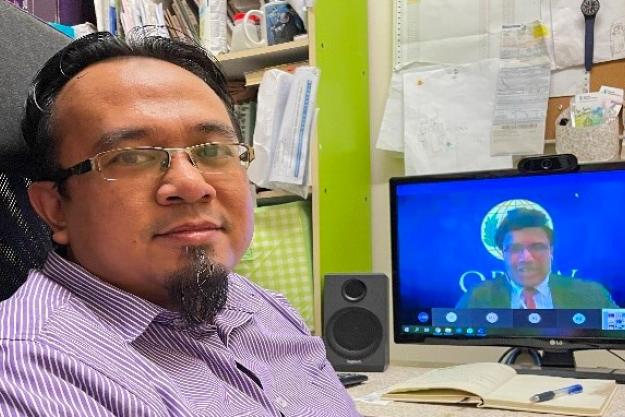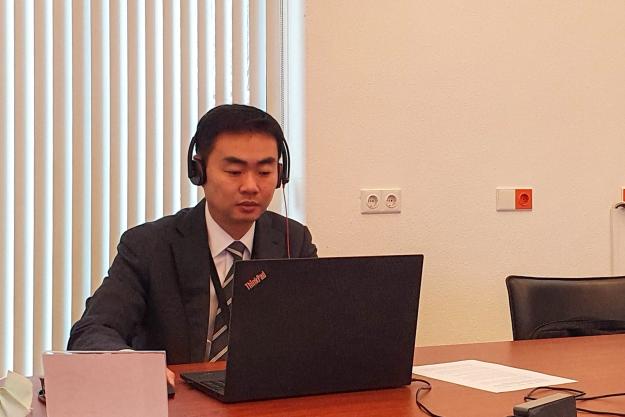
Participant during the Seminar on Chemical Safety and Security Management for Asian Member States
THE HAGUE, Netherlands–23 February 2021–Specialists from the Organisation for the Prohibition of Chemical Weapons (OPCW) Member States in Asia developed advanced chemical safety and security skills during a training course today. The online workshop was convened by the OPCW and Qatar’s National Committee for the Prohibition of Weapons (NCPW).
NCPW’s Acting Chairman, Lieutenant Colonel Staff Rashid Mohammed Al-Naimi, stressed in his opening statement: “Aside from mitigating the risk of chemical accidents and the misuse of toxic chemicals, chemical safety and security is a significant contributor to economic and technological development, which the Chemical Weapons Convention promotes in Article XI. Chemical industry is an essential stakeholder in this endeavour.”
OPCW’s Head of the International Cooperation Branch, Mr Li Zhao, expressed: “Since its inception in 2012, the Chemical Safety and Security Programme in Doha has evolved to become a leading international forum connecting top experts and promoting good practices.”
The workshop brought together chemical safety and security specialists from Asia, including representatives of chemical industry, industry associations, National Authorities, government departments, the defence sector, and academia. They learned how better chemical security management minimises the risk of misuse of highly toxic chemicals and reviewed the resources, tools and skills required to promote chemical security standards. The training also covered strategies to safeguard supply chains against both internal and external threats.
Expert trainers from the OPCW, the NCPW, the United Nations Office on Drugs and Crime (UNODC), INTERPOL, and the International Labour Organisation (ILO) led participants through interactive learning sessions, and responded to participants’ questions about applying the training to their own national contexts.
The workshop was attended by 88 representatives of the following 15 OPCW Member States: Afghanistan, Bangladesh, Bhutan, Cambodia, India, Indonesia, Malaysia, Myanmar, Pakistan, Philippines, Qatar, Sri Lanka, Vietnam, with observers from Germany and Spain.

Background
As the implementing body for the Chemical Weapons Convention, the OPCW, with its 193 Member States, oversees the global endeavour to permanently eliminate chemical weapons. Since the Convention’s entry into force in 1997, it is the most successful disarmament treaty eliminating an entire class of weapons of mass destruction.
Over 98% of all declared chemical weapon stockpiles have been destroyed under OPCW verification. For its extensive efforts in eliminating chemical weapons, the OPCW received the 2013 Nobel Peace Prize.
